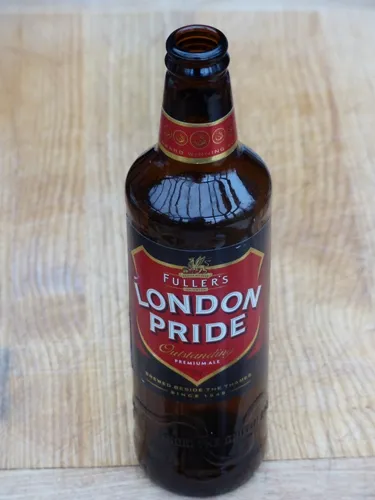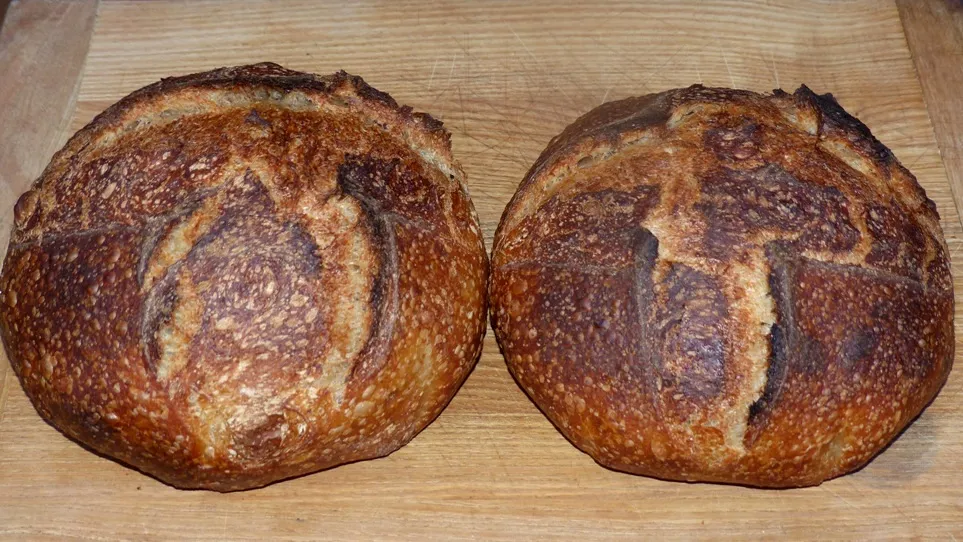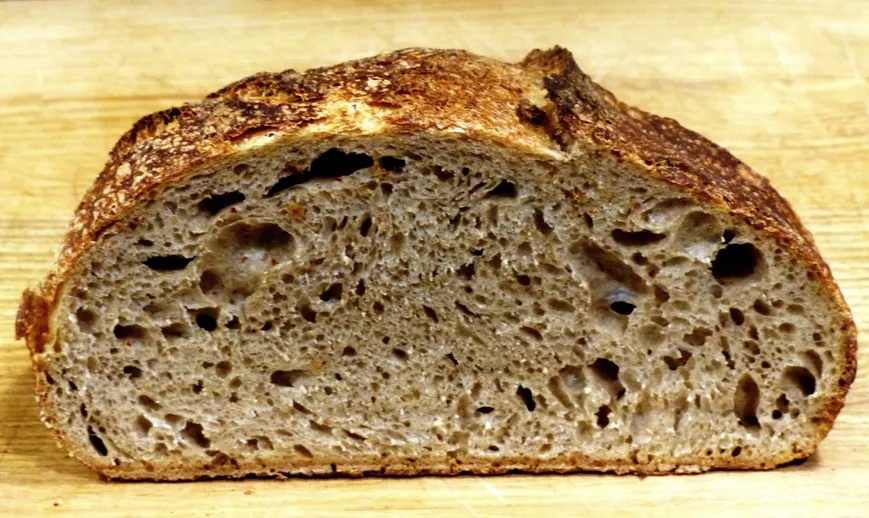Many years ago when my three young daughters were "helping" me to decorate the Christmas tree and were playing with the glass baubles, I asked them to be careful because "they are fragile". Of couse they have called them fragiles ever since,
So Christmas is all over, The tree has gone, the lights and fragiles have been put away for another year. The turkey has been consumed and the carcass has been boiled for stock and with the addition of the uneaten vegetables turned into our once a year turkey soup. And all that remained in the cupboard was a bottle of Fullers London pride Ale so what is a baker to do but make a couple of loaves of beer bread?

I started by looking in Hammelman's book "Bread" at his beer bread recipe and extracted his mix and baker's pecentages of flours. 80% bread flour (I used strong white), 15% whole rye, and 5% whole wheat but then proceeded in a sort of Tartine way because that is what I usually do. I added enough water to the 500ml bottle of Fullers ale to produce 70% hydration and then mixed flour, liquids and salt and went on with a Trevor J Wilson overnight autolyse.
I am completely sold on this legnthy autolyse and use it whenever I can fit it into my schedule. It really does make the dough pleasantly soft to handle and reduces the stickiness in the later shaping stages.

Recipe :-
Strong white flour 888g
Whole meal Rye 166g
Wholemeal flour 56g
Beer 500ml
Water 244g
Levain 250g
Salt 22g
Day 1 mid morning. 1st starter build. 10g+20g+20g
Day 1 8.30pm. 2nd starter build. 50g +50g+50g. And also mix all flour, salt, beer and water together for autolyse and into fridge.
Day 2 8.00 am. 3rd starter build. 150g +60g+60g and take dough mix out of fridge to gently warm to room temperature.
Day 2 2.10 - 2.30pm add 250g levain to the autolysed dough and work in with a series of stretch and folds.
Then bulk ferment for 4hrs 30m with five stretch and folds in the first 2.30hrs.
Divide into two and preshape. Rest for 20 minutes then shape into two boules, tighten and place into bannetons which in my case are two plastic bowls lined with baking parchment. Place in fridge for overnight proof,
Day 3 11am Out of fridge, score and bake in dutch ovens with lids on for 30 minutes at 260c for first 10 mins. then reduced to 235c for remaining 20. Another 15 minutes with the lids off.
And finally how the crumb turned out.

One of the nicest things about this bake was the wonderful fruity aroma given off during the bulk ferment. These two loaves didn't last long and now we will now have to wait another year to repeat the experience.........or maybe not!
Happy New Year to you all.
Alan
That's just beautiful, Alan. We too have put away the fragiles (we have a 1-year old grandson now, and a new set of little hands reaching for things!), though the carcass is in the freezer waiting until I have time to make soup stock. I still have a freezer full of stock from the last bunch of turkey and chicken carcasses cleaned out of the freezer!
That is a lovely bread for sure, and a very leisurely schedule. I like how you've used techniques from several different sources and it all came together so well. I haven't tried the long autolyse with salt yet, but I must do that (and download Trevor's book as well).
Happy New Year!
Wendy
For the kind comments and also for reminding me to download Trevor's book which has been on my to do list for so long that I have forgotten all about it.
Alan
A whole lot of unwanted text has appeared on my entry above. Appears to be some sort of programming language. I have tried to edit it out but it disappears when I click on the edit button.
I guess I have done something daft. Can anyone out there help?
Alan
It comes from copying and pasting from Word. I'll see if I can strip it out automatically.
Yes I did copy and paste the text from Word. I have at last managed to edit it out and all seems to be ok now. I will remember for next time, in fact it it will be a New Year resolution.
Alan